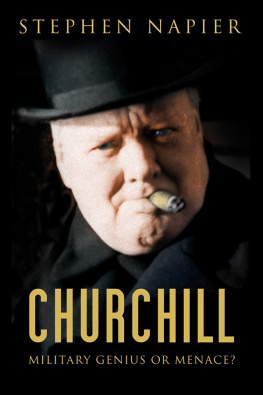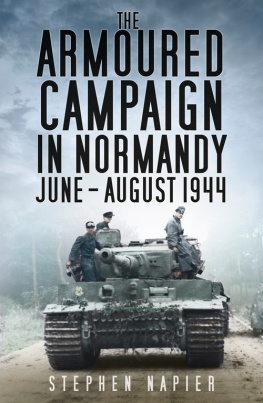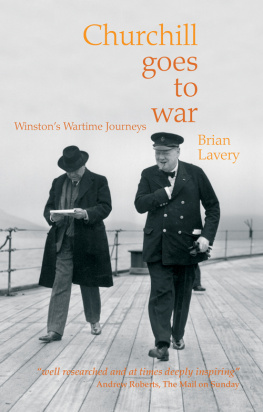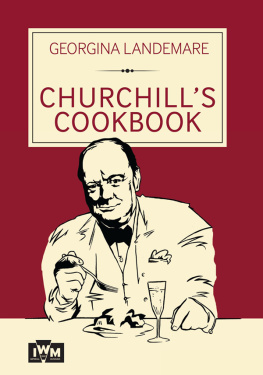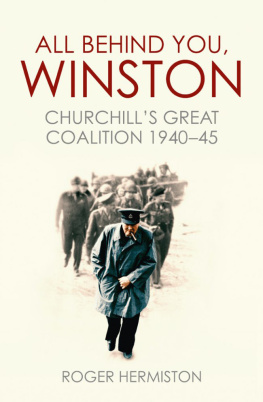Contents
Guide


For Sophie and James
First published 2018
The History Press
The Mill, Brimscombe Port
Stroud, Gloucestershire, GL5 2QG
www.thehistorypress.co.uk
Stephen Napier, 2018
The right of Stephen Napier to be identified as the Author of this work has been asserted in accordance with the Copyright, Designs and Patents Act 1988.
All rights reserved. No part of this book may be reprinted or reproduced or utilised in any form or by any electronic, mechanical or other means, now known or hereafter invented, including photocopying and recording, or in any information storage or retrieval system, without the permission in writing from the Publishers.
British Library Cataloguing in Publication Data.
A catalogue record for this book is available from the British Library.
ISBN 978 0 7509 8878 0
Typesetting and origination by The History Press
Printed and bound by CPI Group (UK) Ltd
eBook converted by Geethik Technologies
CONTENTS
INTRODUCTION
Before the outbreak of the Second World War, the Conservative MP Winston Churchill was regarded as a maverick politician past his prime with a reputation as a political opportunist that he had earnt by changing parties from the Conservatives to the Liberals a man not to be trusted. As Home Secretary in 1911, Churchill had called out the Army to restore order as coal miners rioted in Tonypandy in Wales which also made him a lifelong enemy of the socialists and trade unions. Churchill was a member of the English aristocracy and stoutly defended the retention of the British Empire, opposing any form of independence for India. His military career had been greatly tarnished by the catastrophe of the poorly planned Gallipoli campaign of the First World War. At the end of that conflict and despite the British being heartily sick of the bloodshed, Churchill, having resumed his political career in 1917, enthusiastically supported the White Russians while the Secretary of State for War by sending British troops to Russia. This was a determined effort to destroy the infant Bolshevik regime of Lenin which Churchill regarded as a threat to the old establishments that ruled the world.
With the recent centenary of the First World War and renewed interest in the Second World War, Churchill today is regarded as one of the greatest leaders and politicians that Britain has ever had in its 2,000-year history. He stands alongside legends such as King Arthur and royal leaders such as Henry VIII and Elizabeth I who fought to save Britain in the hour of its greatest danger of invasion. Churchill has even been called the greatest human being ever to occupy No.10 Downing Street by one biographer.
The popular image that endures to this day is of Churchill when he was appointed Prime Minister in 1940 a rotund figure in a bowler hat, bow tie, coat and tails and trademark fat cigar in his mouth or hand, strolling through the streets of Whitehall. Churchill is equally renowned for the famous V for Victory gesture adapted from the two-fingered salute of the bowmen of Agincourt that came to symbolise the strength and will of the British people to resist, survive and go on to victory over Germany and the leader of the Nazi Party, Adolf Hitler.
It is indisputable that Churchills inspirational speeches and broadcasts, when Britain had little else to fight with and invasion was threatened, roused the nation and convinced his political colleagues that Britain should fight on alone, even after Hitlers armies had conquered France and dominated most of Europe. Churchill saw that America was the only source of salvation for Britain and gambled that it would enter the war and won. Churchill also found an unlikely ally in Stalin when Germany invaded Russia, a country which Britain had risked going to go to war with over Finland only a year earlier in 1940.
Churchill worked ceaselessly to build what he called a Grand Alliance, regularly leaving England to meet with his new allies and to co-ordinate aid and military strategy between them against, firstly, Germany and then Japan. Churchill tried by the force of his personality to develop relationships with Roosevelt and Stalin with varying degrees of success in order to be able to influence strategic decisions.
With the leaders of the United States and Russia, Churchill presided over the redrawing of the frontiers of Europe as the powerful Red Army worked its way westwards, steamrolling all in its path as Germany began to collapse in the last twelve months of the war. Since early 1944, Churchill and some Americans had been alive to the dangers posed by the Russian military machine as political discussions between the Allies regarding the borders and new governments of countries previously occupied by Germany were rendered redundant by the advances of Soviet tanks and infantry. The euphoria following victory over Germany was replaced by concerns about the ambitions of Stalin and his massive army. The British Chiefs of Staff even drew up plans for a possible outbreak of war with the Russians (Operation Unthinkable) and Churchill described to the incoming President Truman how an iron curtain had been drawn across the German front line.
As a political and inspirational leader, Churchill remains hugely relevant today for the enormous impact he made on the history of the world. Although the Cold War has ended and the Iron Curtain and its component Berlin Wall have now been consigned to history, the boundaries and political systems of most east European countries were settled at the end of the Second World War and remained unchanged until the collapse of communism in 1989 and the break-up of Yugoslavia in the 1990s.
The Second World War gave one last great opportunity to a complex man. Churchill was an adventurer, an aristocrat, an artist, a romantic, a devoted family man and often a brilliant orator. A keen historian and prolific author, Churchill had written more words than anyone at that time on British history and this gave him a unique perspective that helped sustain him in his leadership throughout the war. Given this background and the fact that Churchill was half American himself, it was almost destiny that he should be the man chosen to become leader of Britain in the hour of its greatest need. Churchill was the one person capable of persuading America to enter the war to defeat the territorial hegemony of Hitlers Nazi Germany by utilising Britain as a military springboard into Europe before it too was forced to surrender.
The war went on for six years, and in its first three years Britain lurched from crisis to crisis, evacuation after evacuation. Thousands of soldiers, sailors and airmen were killed, wounded or taken prisoner, with millions of tons of equipment lost, requiring replacement after each new military setback. Churchill, as the Prime Minister and self-appointed Minister of Defence, was at the centre of the direction of the war and the strategic military decisions taken by the British War Cabinet and the Chiefs of Staff.
As the Prime Minister and the British Commander-in-Chief, any close scrutiny of the success or otherwise of his strategies for the conduct of the war have largely been glossed over by the ultimate Allied victory. Churchill himself famously said, For my part, I consider that it will be found much better by all Parties to leave the past to history, especially as I propose to write that history myself.

